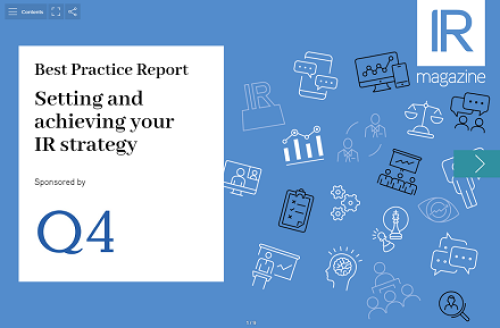Russia’s largest firm seeks to broaden shareholder base amid slowing GDP growth and political crisis
Gazprom will be turning its focus eastwards in order to target new shareholders and debt investors as a result of the ongoing political clash over Ukraine, according to Bloomberg BusinessWeek.
The Russian gas export company, which is held at 5 percent and 10 percent by UK and US funds, respectively, has instructed its IR team to stop marketing to US and European investors in order to focus on Asia and the Middle East.
Developing its ties with Asia ‒ in particular with China, its largest market in the Asia-Pacific zone ‒ has been a key priority for the company since its earlier disputes with Ukraine, the main country of transit toward its European customers. In 2006 and 2009 disagreements with Kiev over price increases led Gazprom to abruptly cut gas supplies, bringing deliveries in Eastern Europe to a halt during the winter’s sub-zero temperatures. Western European countries, which had started diversifying their suppliers and developing storage facilities in order to avoid an overdependency on Russian gas, were affected to a lesser extent.
As the Russian embassy in Beijing recently wrote on its Sina Weibo account: ‘Western sanctions may bring Russia and China closer together.’
Gazprom has been seeking to sign a 30-year contract with China, the only country to abstain in last month’s vote against Russia’s action in Ukraine at the United Nations Security Council. The transaction would see the company deliver up to 60 bn cubic meters of natural gas yearly, and could accelerate the long-awaited ‒ but much-delayed ‒ construction of a new eastbound pipeline. The deal is expected to be signed during Russian President Vladimir Putin’s visit to Beijing in May, reports Russian news agency RIA Novosti.
The gas major, which is Russia’s second-largest corporate borrower with $37 bn of outstanding bonds, may also start targeting Asian funds with a dedicated $1.5 bn bond issue, a substantial portion of its usual annual debt program of $5 bn-$9 bn, according to an analyst from Fitch Ratings.
Although Gazprom is a public company with a market capitalization of $90 bn, its corporate purpose and modus operandi are far different from those of a traditional company. The Russian government, Gazprom’s majority owner, is highly dependent on oil and gas revenues, which account for half of its budget. It has historically used the firm, which controls one fifth of the world’s gas reserves, not only as a domestic instrument of social peace, supplying remote districts of the former Soviet Union with cheap gas, but also as a powerful geopolitical weapon controlling the export tap.
The Russian economy, which has been showing signs of weakness this past year, is bound to further suffer from the dispute over Crimea, the worst crisis to hit relations between the West and Russia since the Cold War. An estimated $70 bn in foreign capital have been withdrawn from the country since the beginning of the year, compared with $63 bn for the whole of 2013, revealed Andrey Klepach, deputy head of the Ministry of Economic Development and Trade, last month.
The Moscow Exchange’s RTS and MICEX indices have fallen 17 percent and 10 percent, respectively, since the beginning of the year, while Gazprom’s share price has shed 14 percent.










